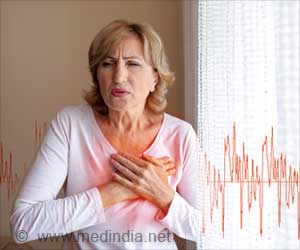Think vitamin D protects your heart? New research reveals supplements may not lower heart disease risk in seniors, even at high doses!

- Vitamin D supplements do not lower cardiovascular disease markers in older adults over a 2-year period
- The research reviewed data from a double-blind, randomized trial with doses up to 4,000 IU daily, showing no impact on heart health
- Findings suggest that factors like outdoor physical activity may be more effective for heart disease prevention than vitamin D supplementation
Taking vitamin D supplements may not lessen the risk of cardiac arrest in older persons, according to a recent study from Beth Israel Deaconess Medical Center, a Harvard affiliate (1✔ ✔Trusted Source
Study shows vitamin D doesn’t cut cardiac risk
). Cardiovascular disease (CVD) is the leading cause of death among persons over the age of 65.
Does Low Vitamin D Increase the Risk of Heart Disease?
“While multiple observational studies have demonstrated a relationship between low vitamin D and high risk for cardiovascular disease, few randomized controlled trials to date have evaluated the role of vitamin D supplementation on cardiovascular disease,” said lead author Katharine W. Rainer, a resident physician at BIDMC.
“Our study decisively showed that vitamin D had no effect on the markers of cardiovascular disease over the 2-year follow-up period, regardless of dose,” said Catherine W. Rainer.
No Link Between Vitamin D Supplementation and Reduced Risk of Heart Disease
To test the effect of vitamin D supplementation on the heart, researchers at BIDMC investigated if increasing dosages of the vitamin reduced the presence of two specific proteins in the blood that suggest cardiac injury and strain.
The team’s review of data from a double-blind, randomized trial- the highest standard of scientific testing that yields the most compelling results- does not support the use of higher-dose vitamin D supplementation to lower cardiovascular risk in persons with low vitamin D levels. The study was published in the American Journal of Preventive Cardiology (2✔ ✔Trusted Source
Effects of vitamin D supplementation on cardiac biomarkers: Results from the STURDY trial
Rainer and colleagues examined data from a National Institute of Aging-sponsored experiment that ran between July 2015 and March 2019. Participants were randomly assigned to one of four groups and given either 200, 1,000, 2,000, or 4,000 international units (IUs) per day of vitamin D3. Blood levels of cardiovascular disease indicators were assessed at baseline and at three, twelve, and 24-month follow-ups.
The researchers discovered that decreased vitamin D levels were related to an increase in one cardiovascular disease marker at baseline, but failed to reduce either marker over the two-year trial period, independent of dose. The results were mostly constant regardless of the individual’s age, gender, race, or history of cardiovascular disease, such as high blood pressure and/or diabetes.
Advertisement
“While much work is needed to understand why vitamin D deficiency is associated with CVD, our study adds to the growing body of evidence that daily or monthly vitamin D supplementation does not prevent CVD events or reduce markers of subclinical cardiac injury or strain,” said corresponding and senior author Stephen P. Juraschek, research director of the BIDMC Hypertension Center. “Instead, there may be other factors upstream to vitamin D and CVD (such as outdoor physical activity, for example) that may be a better target for preventive interventions.”
References:
- Study shows vitamin D doesn’t cut cardiac risk – (https://news.harvard.edu/gazette/story/2024/10/study-shows-vitamin-d-supplementation-doesnt-cut-cardiac-risk/)
- Effects of vitamin D supplementation on cardiac biomarkers: Results from the STURDY trial – (https://www.sciencedirect.com/science/article/pii/S2666667724002393)
Source-Medindia



